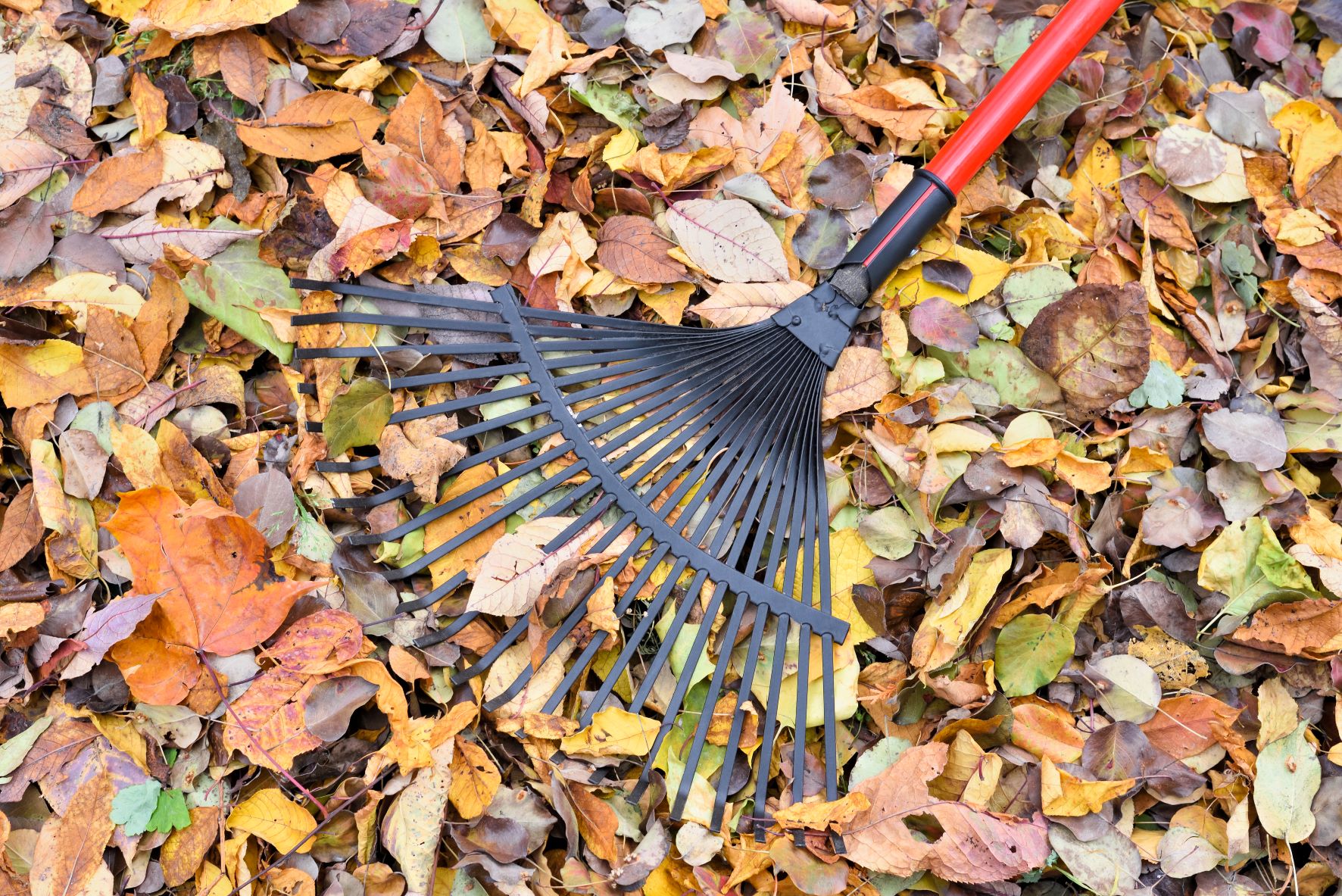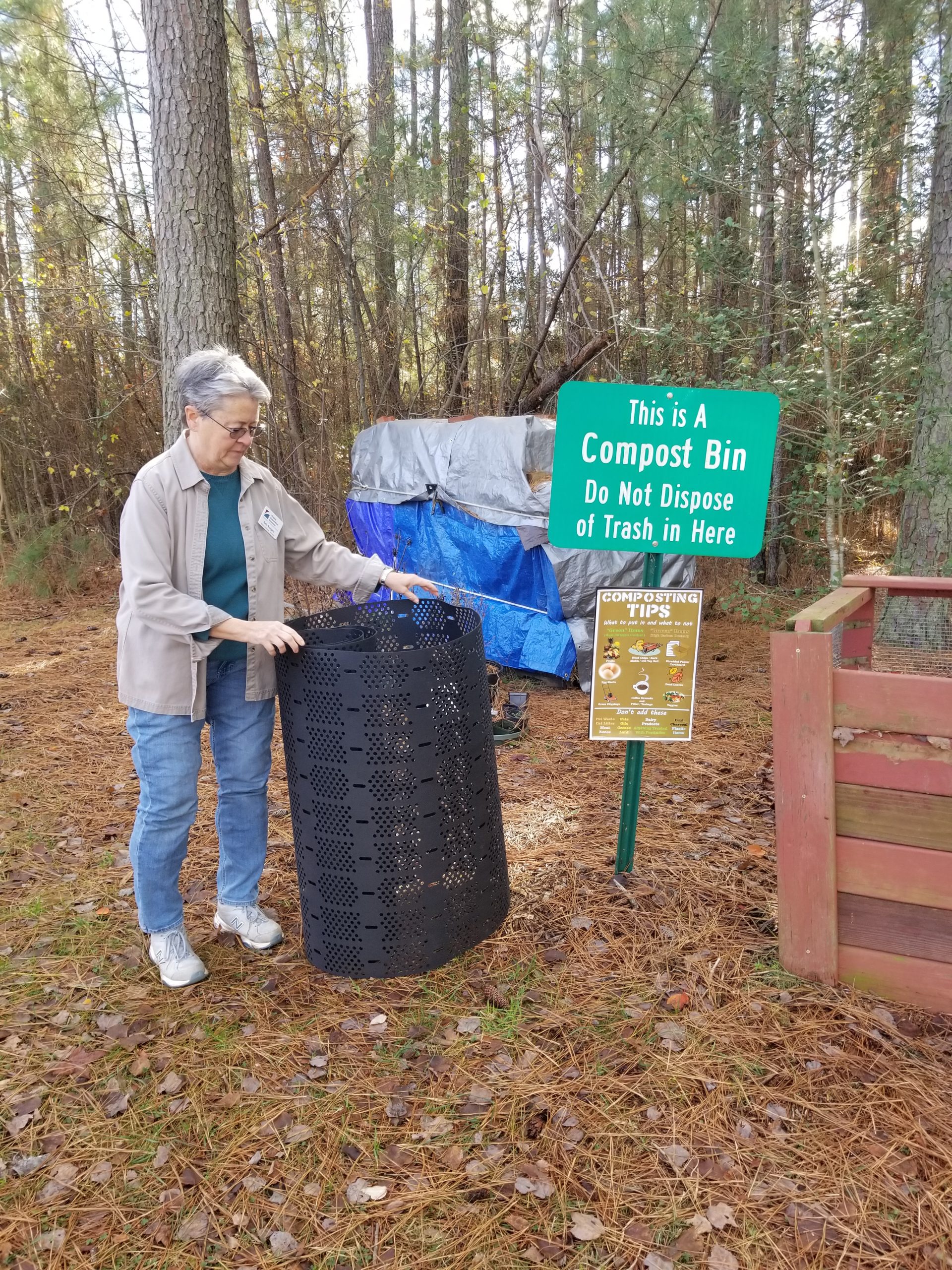
Nature’s Free Mulch
December 8, 2022 |
By the time December rolls around, fall color is waning in Central Virginia.
The leaves that bestowed on us the scenic patchwork of the season have fallen, prompting people to pull out the rakes and leaf blowers.
We spend considerable time, money and energy removing leaves from our yards — in some cases, we’re sending them straight to the landfill.
However, leaves are anything but waste.
Virginia Cooperative Extension Master Gardener Beth Rodgers of Chesterfield encourages people to take advantage of the bounty dropping from the trees.
Doing so benefits the environment as well as our wallets and aching backs!
Here are some alternatives to leaf removal:
Use fall leaves as mulch. This will enrich the soil, suppress weeds, help soil retain moisture and structure, and protect plants from harsh temperatures.

Beth Rodgers opens a GEOBIN composter at the Chesterfield Cooperative Extension demonstration garden. The county’s Master Gardeners are teaching people to compost in order to benefit soil health and the environment.
Start a compost pile. “Composting is cheap and easy,” says Rodgers, who is also a certified Master Composter in three U.S. states (Virginia doesn’t offer the certification . . . yet).
Fallen leaves are an excellent source of the carbon needed to create compost — that earthy, nutrient-rich stuff that improves depleted soils.
No special equipment is needed. Form a bin out of chicken wire or start a freestanding pile in a level, well drained spot.
Break up fallen leaves and mix them with nitrogen-rich materials such as grass clippings and vegetable and fruit scraps. Aim for a mixture of 3 parts carbon and 1 part nitrogen (by volume).
Keep the pile very slightly moist but not wet. Turn or stir it occasionally.
“Manage it just enough so it doesn’t become a problem,” Rodgers said, “and you’ve got a good soil amendment for spring.”
Side note: Chesterfield Cooperative Extension’s “Composting Made Easy” course will be offered four times in 2023. Attendees receive a GEOBIN composter (shown in photo). Call 804-751-4401 for details.
Mulch leaves with a mower. “There’s no need to rake leaves if you’re willing to mulch them with the mower,” Rodgers says. “You’ll have to go over them a couple of times in the season. You don’t want the leaves to get too deep.”
Set the lawnmower on a high-cut setting (around 4 inches) and simply mow over dry leaves. One to two passes should do the job. Chopped leaves will nourish the soil as they decompose.
You could even use the mower’s catcher to collect and move mulched leaves. Spread these over garden beds just as you would store-bought mulch.
“You don’t have to pay a penny for mulch!” Rodgers says.
Leave the leaves for wildlife. Unless your neighborhood association requires you to clear leaves, you are free to leave them be. Whole leaves provide habitat for overwintering animals, including frogs, butterflies and lightning bugs.
Spread leaves on garden beds to protect plants and suppress weeds.
If you need space for children or pets to play, designate one area of the yard as a leaf-free zone. Leave the leaves everywhere else.
Resources
Chesterfield Cooperative Extension Help Desk: 804-751-4401
Praise for Fallen Leaves (Virginia Department of Forestry)
Composting at Home (U.S. Environmental Protection Agency)
Leave The Leaves for Wildlife (National Wildlife Federation)
Tags: chesterfield cooperative extension, compost, fall, leaves, master gardener, mulchCategory: Ashland, Charles City, Chesterfield, Colonial Heights, Featured, Goochland, Hanover, Henrico, Hopewell, New Kent, News, Petersburg, Powhatan, Prince George, Richmond
